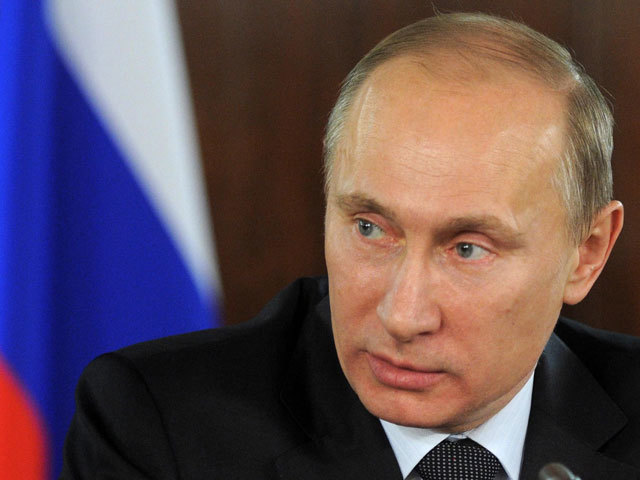
Russia’s central bank has promised to support financial institutions hit by US sanctions as stocks took a tumble in Moscow on Wednesday.
In an online statement, the bank promised to “take adequate measures” to support targeted institutions. Russia’s state-owned VTB bank – Russia’s second-largest – was down 0.5% on Wednesday morning.
Other major banks that were left unscathed by sanctions – such as the country’s largest, Sberbank – were trading higher. Russia’s MICEX benchmark index added 2.3% from its previous closing.
US officials said roughly 30% of Russia’s banking sector assets are now constrained by sanctions.
The move comes after Malaysia Airlines Flight 17 was shot down over eastern Ukraine. Western officials accuse pro-Russian separatists of bringing down the plane with a missile supplied by Moscow.
The West also halted future sales to lucrative Russian economic sectors, with the US announcing plans to block future technology sales to the oil industry and Europe approving an arms embargo. The Europeans also backed sanctions against state-owned banks and the energy sector, though the specific EU targets won’t be made public until later in the week.
Western officials insist the new sanctions will damage an already struggling Russian economy. The International Monetary Fund has slashed Russia’s growth forecast for this year to nearly zero, down from 1.3% last year, and the US says more than 100 billion US dollars in capital is expected to flow out of the country.
“Russia’s actions in Ukraine and the sanctions that we’ve already imposed have made a weak Russian economy even weaker,” US president Barack Obama said.
It remained uncertain whether the tougher penalties would have any impact on Russia’s actions in Ukraine – nor was it clear what further actions the US and Europe were willing to take if the situation remains unchanged. In the nearly two weeks since the Malaysia Airlines plane was felled in eastern Ukraine, Russia appears to have deepened its engagement in the conflict, with the US and allies saying that Russia was building up troops and weaponry along its border with Ukraine.
Europe has a far stronger economic relationship with Russia than the US does, and until this week European Union leaders had been reluctant to impose harsh penalties – in part out of fear of harming their own economies.
EU president Herman Van Rompuy and the president of the European Commission, Jose Manuel Barroso, said the sanctions sent a “strong warning” that Russia’s destabilisation of Ukraine could not be tolerated.
“When the violence created spirals out of control and leads to the killing of almost 300 innocent civilians in their flight from the Netherlands to Malaysia, the situation requires urgent and determined response,” the two top EU officials said in a statement.
The new EU sanctions put the 28-nation bloc on par with earlier sector sanctions announced by the US and in some cases may even exceed the American penalties.
Obama said coordinating the actions will ensure that the sanctions “will have an even bigger bite”.
Despite the West’s escalation of its actions against Russia, Obama said the US and Europe were not entering into a Soviet-era stand-off with Russia.
“It’s not a new Cold War,” he said in response to a reporter’s question.
German foreign minister Frank-Walter Steinmeier pressed for a diplomatic effort to calm the situation in Ukraine, saying that “sanctions alone are not a policy, so we must continue to seek opportunities to defuse the conflict politically”.
A meeting planned in Minsk this week between the contact group and representatives from eastern Ukraine “must agree steps on the road to a ceasefire,” Steinmeier said in a statement.
He renewed a call on all sides to allow unrestricted access to the Malaysia Airlines crash site. “It is intolerable that, two weeks after the crash, it is still not possible to bury with dignity the dead who remain at the crash site,” he said.
Australia’s prime minister Tony Abbott said he was focused on the Malaysia Airlines disaster and was not considering ratcheting up sanctions against Russia.
“I’m not saying that we might not at some point in the future move further. But at the moment, our focus is not on sanctions; our focus is on bringing home our dead as quickly as we humanly can,” Abbott told reporters.
Recommended for you
